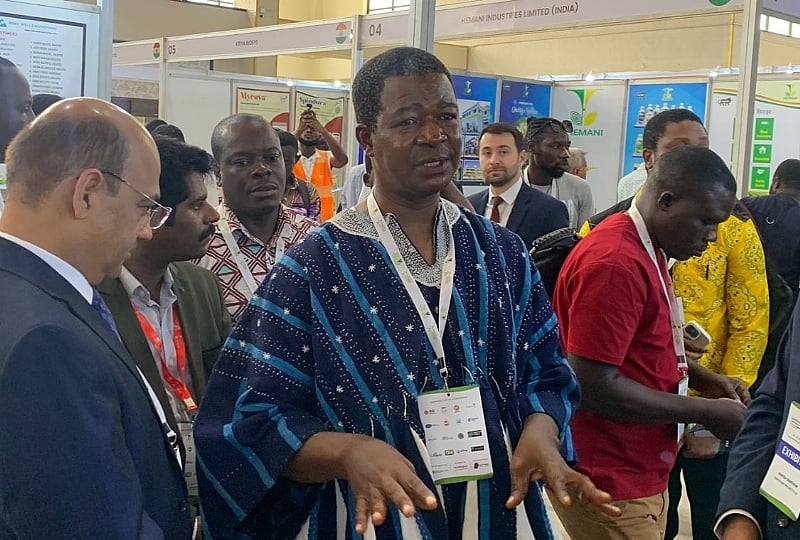Ghana’s Ministry of Food and Agriculture has underscored the government’s steadfast dedication to leveraging the agricultural sector as a catalyst for national economic transformation. This commitment envisions agriculture as a driving force for industrial expansion, job creation, and increased export activity, thereby contributing significantly to the country’s overall economic growth and development. The government recognizes the immense potential of the agricultural sector, not just for food production, but also as a foundation for broader economic prosperity.
Central to this strategy is the government’s flagship initiative, the Feed Ghana program. This comprehensive program aims to bolster national food security by enhancing agricultural productivity and ensuring access to affordable and nutritious food for all Ghanaians. Furthermore, the Feed Ghana program seeks to stimulate value addition in the agricultural sector, moving beyond raw material production to processing and packaging, thus maximizing the economic benefits derived from agricultural output. This focus on value addition also aims to increase the supply of raw materials to agro-processing industries, fostering the growth and development of this crucial sector. Finally, the program is designed to expand agricultural exports, boosting foreign exchange earnings and enhancing Ghana’s presence in the global agricultural market.
The Feed Ghana program comprises nine key subcomponents, strategically structured to address various aspects of the agricultural value chain. Two particularly significant subcomponents are the establishment of Farmer Service Centers and the development of Agro Production Enclaves. These initiatives are designed to provide comprehensive support to farmers and create an enabling environment for large-scale commercial agriculture.
The Farmer Service Centers will function as integrated hubs providing essential services to farmers under one roof. These centers will offer a range of services including access to mechanization services, improved seed varieties, fertilizers, and agrochemicals. Furthermore, they will provide crucial extension services, offering farmers expert advice and guidance on best practices in agriculture. Critically, the centers will also facilitate market access, linking farmers directly with buyers and ensuring fair prices for their produce. By bringing these essential services together in one location, the Farmer Service Centers aim to streamline the agricultural process and enhance productivity.
Complementing the Farmer Service Centers are the Agro Production Enclaves, envisioned as large-scale commercial agricultural hubs. These enclaves will be equipped with modern infrastructure including irrigation systems to ensure reliable water supply, well-developed road networks for efficient transportation of inputs and outputs, and warehousing facilities for storage. Moreover, the enclaves will also house processing facilities, enabling on-site processing of agricultural produce and adding value to the products. These comprehensive facilities aim to attract significant investment in the agricultural sector and consolidate production, promoting economies of scale and driving further growth.
The government is actively encouraging both domestic and international agribusinesses to capitalize on the numerous opportunities presented by Ghana’s burgeoning agricultural sector. The ministry has emphasized its commitment to fostering strong and strategic partnerships with the private sector, recognizing the vital role of private investment in driving agricultural transformation. The government is dedicated to creating a conducive investment climate, providing incentives and support to attract both local and foreign investors, further stimulating growth in the agricultural sector.
This initiative exemplifies the government’s dedication to creating an environment that fosters sustainable agricultural growth and development. By providing essential services and infrastructure, the government aims to empower farmers, boost productivity, and stimulate investment in the agricultural sector. Ultimately, this strategy seeks to transform agriculture into a major engine of economic growth, creating jobs, enhancing food security, and driving prosperity for Ghana. The government’s commitment to partnerships with the private sector underscores its recognition of the importance of collaborative efforts in achieving these ambitious goals. The combined efforts of government initiatives and private sector engagement are expected to propel the agricultural sector forward and contribute significantly to the nation’s overall economic advancement.














